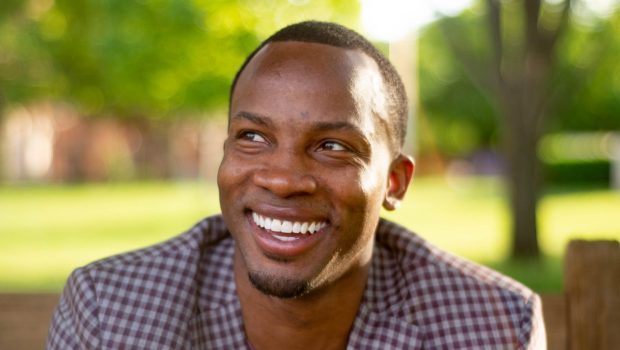How Ryan Broyles Avoided Becoming a Statistic!
The ex- Oklahoma University star and former Detroit Lions second- round pick learned financial literacy at a very young age and applies it at 32.
Ryan Broyles set the college football world on fire. The Sooner receiver set multiple records and finished his career in Norman with, 349 receptions for 4,586 yards and 45 touchdowns. He earned the MVP Award at the Sun Bowl in 2009 lighting Stanford up with 156 yards on 13 receptions while finding the endzone 3 times. However, his senior year, he suffered a torn ACL. Broyles put up exceptional numbers through 8-games and despite the injury, his impact was enough for the Detroit Lions to select him in the second-round with the 54th pick. After suffering another ACL injury, Broyles who had already begin to research what his future would be without football sprung his idea of being financially responsible into action. With his NFL career officially over in 2015, Ryan Broyles refused to be a statistic. He became a real estate investor, invested in stocks and is doing quite well.
During our recent conversation, Broyles shares his story of investing his NFL earnings into other prosperous businesses, explains the importance of handling your own finances and encourages others to educate themselves through financial literacy readings.
First and foremost, shout out to, Flemlo Raps who did an amazing job sharing your story. What did you think of the final presentation?
Ryan Broyles: He killed it, man. I’ve been watching him since quarantine started and I was like, “What is this dude up to, man?” So, I checked him out and I was like, “I gotta have him tell my story, man.” He killed it for me, man.
There are so many athletes where you say, “What happened to Ryan Broyles?” For you to have success outside of the NFL is a big deal because I think it shows so many guys that, there is life after football if you make the right investments and moves. Was that the main message you wanted to convey?
Ryan Broyles: Man… believe it or not, my last training camp, I was a second-round draft pick. I had all these reporters saying, “These coaches aren’t drafting people right, they got these first and second-round guys that are not staying on the team. Let’s go and dog this guy.” So, I essentially had my last preseason game, or really the last preseason camp I had, I had this reporter. I can’t remember his name, but anyway, he came at me kind of crooked. He was like, “So Ryan, you signed a $3 million deal and you’re essentially about to get cut. What are you going to do next?” He wanted the story where it’s like, the guy who was at the top and now he’s falling off. I was like, “Honestly, I set myself up, I learned some things…” I went into that story, and he is the one that actually started producing the CNBC story that got me on the news. He was like, “Hold on. I didn’t expect this,” you know what I mean? There was never a day where I was like, I want people to know what I’m doing. It was more like, “Yo, don’t come at me crooked. I’m more than just a football player.” And then it just grew from there.
You spoke openly about your ‘Mission of Hope’ in Haiti changing your outlook on life. How so?
Ryan Broyles: ‘Mission of Hope’ Haiti… It was really a big turning point for me. I grew up in the Baptist Church here in Oklahoma City. As 8,9, 10-year old’s, we would dress up and drive out to the city, do the whole thing, church was all day it seemed like and at 14-15 years old, my mom was like, “Hey Ryan, do you want to continue going to church? It’s your decision now.” I was like, “No!” I would sleep in on the weekends and play video games. So, I kind of lived that life essentially through college. I get to my junior year in college and it’s like, “Hey Ryan, the football team is going to go to Haiti. It’s time to focus up on God and things like that.” I kind of changed my life pretty much my sophomore year in college. Junior year comes around, after that season was over, “Hey, we’re going to Haiti. We are going to go on a mission trip and help some people.” I’m like, “Okay! I’m going to go to Haiti and tell people that I’m the man in college football.” I felt like I was going to give them more than what they gave me. From the time that I touchdown on the ground, it was the most impoverished place that I had ever seen. It changed my mentality and the way they worshiped God. They had nothing. The chicken on the bone was not even meat. And they smiled and played basketball and they loved their friends. They barely had clothes on their back. For me it was like, I’m in America, I’m in college, I’m on top of the world, but I’m not as happy as these people. It made me change my perspective on life, man.
You set so many receiving records at the University of Oklahoma, arguably the greatest receiver in the history of the school, and then you tear your ACL in 2011. Did that change your perspective as a football player in terms of being an eye-opening experience that it could end at any minute, or did you think you would bounce back and be 100% again?
Ryan Broyles: Man… honestly, I’ve been through ankles and thumbs and things like that, but nothing to that extent. After my junior year, I had a second-round grade, talked to my AD [Athletic Director] talked to some coaches and counselors. It was like, “Maybe you should come back for another year and hopefully solidify yourself not only as one of the best NCAA players ever, but you could go down at OU as the best receiver ever.” So, I was like, “Alright, I’m going to come back and dot all those I’s and cross those T’s and then go first-round.” Anyways, I come back and 8-games in I tear my ACL. And I’m like, “Man, I come back to make it to the first-round and break all these records and now I’m sitting on the training table.” It was a game changer for me mentally. I can’t say I thought I was out because I’ve always had that mentality that I’m going to figure it out. At that point I was like, “I’m not going to be stopped here.” At that moment and with Haiti, I realized, I’m more than just a football player. There’s gotta be more out there just in case I can’t play. Then going into my rookie year in the NFL, the Rookie Symposium, it kind of shaped my mind, and that’s where the maturity happened. A lot of things happened early to allow me to be where I am today.
What was your time in Detroit like? Not only as a football player but in general?
Ryan Broyles: I think I started out slow there. I’m a second-round draft pick, I’m bouncing back from an ACL, I wasn’t making big plays here and there and even my rookie year, I tore my ACL again. And I’m like, “Man, am I supposed to be here? Do I belong?” I pretty much stayed to myself. It was me and my wife at the time and my dog. I didn’t party much. I didn’t go see the city much. It wasn’t until my second year where I was like, “You know what, if injuries is part of my life, I’m going to ball out as much as I can, I’m going to embrace the city.” So, I would go to The Henry Ford Museum, I would go to Motown, I would go to Downtown. I started opening up and met some good friends that I’m still friends with today. It took me until after my first year to say, “You know what, I’m here, I can make a life of this thing.”
You learned at any early age, not only the importance of protecting your finances, but how to hustle and grind and how to look past your immediate money which was football for you to create other monetary opportunities. How important was that for you and how important is it for you to spread that message now?
Ryan Broyles: I would say this, I’ve been mowing yards, I worked at the YMCA in college, mowing lawns since I was 8-years old. I done odd-in jobs all the way through school. I had to pay for my own gas when I got a car at 18. I had to pay for my own lunch in 6th grade. I’ve always been working for myself. My parents implemented that in us. We didn’t have much money, so we were essentially self-sufficient. It’s not like I just woke up one day and I was like, “I’m a hustler.” I always had that in me. Then I tear my ACL when I’m about to make some big money, I make big money, then I was like, “Okay, I have to level up some way.” I started researching some things, what do people actually do when they have a lumpsum of money. I started learning about real estate, stock investments and things like that. I leveled up and now I gotta go give this back. My parents never had a CPA, my parents didn’t have financial advisers. So, I’m like, “Okay, I am the life for my family,” so I took it upon myself to learn not only for myself but to give back. Now that I’m 32-years old, many years removed from the NFL, there’s so many people that were in my shoes that don’t even know what it looks like. Now it’s like, let me give them a tidbit here let me give them a tidbit there, and maybe it’ll open their minds. It’s definitely a passion of mine because I wouldn’t be here today if I didn’t tear my ACL or if I wasn’t mowing lawns at 8-years old. I know there is a kid out there that is in my same position and they just need one person to say, “Hey kid, look at this book. Poor people live like this, but this is how wealthy people make money.” So, that’s where I’m trying to bridge that gap because I was a poor kid, man.
In most cases it’s hard for ex-football stars to move past chasing that football dream because they are afraid or reluctant to go back home and deal with the, “What happened,” aspect from outsiders who followed their careers. Did you deal with people wondering why you were home and asking, “What happened?”
Ryan Broyles: It was weird, after I retired in 2015… I wouldn’t say I officially retired in 2015. I didn’t make the team. I still tried to stay in shape and things like that. And people would be like, “Hey Ryan, are you still working out? Are you still doing this?” And I would be like, “If they call, I’ll be ready.” It was a weird phase for like a year. But I started my career for after football my rookie year in the league. I had an easy segway. In 2015 after I was released, I pretty much sat on the couch for 3 or 4 months. I was like, “Alright, this might now work.” So, I hopped online and was like, “Alright, what’s my next thing?” It was real estate. I molded my new ideas into that and the blessing for me is I lived in Dallas. My hometown is in Norman, so when I retired, I moved away from the center base, the hometown. So, that allowed me to get my grip, figure out who I was, and then when I moved back to Norman, I was already a real estate investor at that point.
We have our share of horror stories when a young guy gets a ton of money to do what he loves to do which is play football. What advice would you offer some of these young athletes that quite honestly, think sports are at least the revenue lasts forever?
Ryan Broyles: Man… you know what, the one thing about me when I’m in the locker room and when I was in the league, you’ve got these players that say, “My financial advisers pays my cell phone bill and they pay my rent.” And I’m like, I grew up independent. I’m trying to feed myself lunch in 6th grade. Why would I let somebody else manage my finances? It was just weird to me. So, what I would say, it’s your money at the end of the day. And better believe, when you’re done playing the game of football, they’re moving on to the next rookie. If you have not built a foundation, you’re going to be “SOL.” On top of that, when you’re in the league and you’re making income, you need to be learning about assets and liabilities. Things like that outside of the game because at some point you’re going to be there. And it’s very unfortunate that a lot of people don’t understand that. Literally, 78% of people are broke. You can take that from whatever stat you want it to be after 5-years in the league.
And because you inflate your lifestyle to where you’re spending a million dollars a year, but when you’re done, it’s hard to go back to $500,000, it’s hard to go back to $300,000 a year. You need to make sure that your assets are supplementing your lifestyle. I can go on and on about that because I’m very passionate about personal finances. You gotta watch your own books. You gotta be a grown man. Yeah, you’re playing football, but you got an hour a day while you’re on Instagram and in Twitter to learn about your own finances.
Do you feel like the reckless spending is because they are making more money than they ever have before, do you feel it’s a status thing or simply, they feel their talent will never dissipate therefore the max contracts will always be there?
Ryan Broyles: Yeah, well there were a lot of guys who I was in the locker room with and they were like, “This is my contract year. I’m about to get paid.” I’m like, “Alright cool.” I never looked at it that way. What’s in my account today is how I’m going to live my life. I can’t really speak on that because I never really understood that mentality. I’m not cashing checks unless it’s in my account type a deal. On the flipside, I made it to the NFL, and everyone thought I had $10 million in my bank account. Like… come on, bro, I’m making a million a year and we have taxes. So, I would say some of the younger guys, they signing $3 to $4 million contract and they think they are getting $3 to $4 dollars, and they put their mom on payroll. One of the first questions I had with a financial adviser was, “Who is on your payroll?” I’m sitting there like, “Payroll? Nah bro.” That’s the thing, people are like, I made it, so now I gotta go and help other people before they actually even make plays and that’s just not healthy.
Now, collegiate players are able to use their name and likeness to make money and garner some sponsorship money. Now, instead of guys having to figure it out at 23-24 years old, they have to figure it out at 18-19 years old. Obviously, this interview will be out there at their disposal, the Flemlo Raps video is out there, but any immediate advice to those student-athletes?
Ryan Broyles: It’s huge, man. And we’ve heard this story time and time again, there is no financial education in high school, you definitely don’t get it in middle school, and you don’t even get it in college. So, it’s almost like the system is built against us. And you don’t really understand it until after you go in credit card debt, until after you go and finance that brand-new car or until you over leverage yourself on a house. And then you’re like, “Hold on, what’s going on,” and then it’s too late at that point. Or when you go and have a kid before you’re married and then you have multiple kids with child support and there is no way back at that point. So, we gotta get these kids early. With these college kids, there has to be programs put in place, but at the end of the day, I don’t know if there is going to be a system implemented. If there were a system implemented for the people to understand finances, we would not be a capitalistic country. Because too many people would be well. We need people to go to work and be productive to make the man the money. Even how the tax system is drawn up right now, if you own a business, you get the most deductions because you’re going to employ the people that are actually paying taxes. So, think about if we were all entrepreneurs, who is paying the taxes? That’s why the system… they don’t want you to know about money.
You just educated me as well. It’s so good to see you doing well, my man. I wish you continued success. Is there anything else you would like to add?
Ryan Broyles: I appreciate the opportunity to share my story, man, and keep the energy. I appreciate that!
Tweet




























